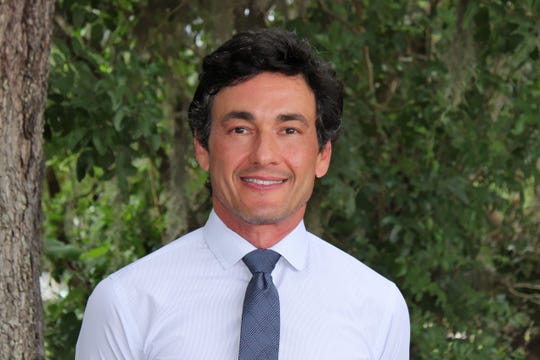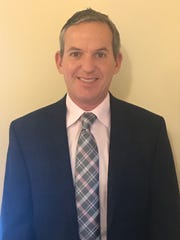Comment; I agree with the need for parity with other diseases covered by health insurance. I think we need more information regarding long-term effect of needle exchange programs. We also need to come up with a way to cover Naloxone costs that ideally pass those expenses to those who benefit.
Jason Fields and Aaron Wohl, Your TurnPublished 5:00 a.m. ET April 11, 2019CONNECTTWEETLINKEDINCOMMENTEMAILMORE

Dr. Aaron Wohl (Photo: Your Turn)
In the midst of the nation’s deadliest drug overdose epidemic, during which Florida witnessed the 16th highest rate of drug overdose deaths in the nation, lawmakers must act now to remove barriers that prevent Floridians with substance use disorder from accessing the care they need.
Florida’s Legislature is considering two critically important bills that will help people working on the front lines of this public health crisis save lives. Though different in nature, both bills work to remove the stigma often attached to the disease of addiction, and strengthen the health of Florida’s communities.
First, we know insurance coverage limitations can create life-or-death situations for patients with substance use disorder, many of whom don’t have time on their side.

Dr. Jason Fields (Photo: Your Turn)
Insurance coverage limitations for addiction care should be no more restrictive than for diseases like heart disease or diabetes — a concept called parity. But while this type of discrimination against patients with addiction is prohibited by federal law, we believe many insurers still place arbitrary limitations on substance use disorder treatment coverage that put our patients – and thousands of others throughout the state – at grave risk.
Fortunately, our state lawmakers have an opportunity to act by passing Senate Bill 360, which would help prevent health insurers that provide mental health and addiction coverage in the state from imposing less-favorable benefit limitations than those for other medical conditions.
Second, while correcting discriminatory insurer practices is critical to removing the stigma of addiction, more must be done to expand harm reduction measures that protect people with substance use disorder and improve overall community health.
For example, Miami’s sterile needle and syringe exchange pilot program – the only explicitly authorized program in the state – has already successfully reduced overdose deaths and slowed the transmission of infectious diseases. As compassionate spaces, sterile needle and syringe exchanges provide a unique venue to offer a variety of services to help people with substance use disorder — from providing naloxone, a medication that saves lives by reversing opioid overdoses, to addiction treatment referrals, to programs that offer evidence-based treatment and recovery support services.
Florida now has a real opportunity to expand the life-saving efforts of sterile needle and syringe exchange programs with House Bill 171, which would make it legal for additional entities to launch similar programs across the state.
When it comes to the management and treatment of addiction, the state of Florida now stands at a crossroads. Making a critical difference is possible by vote and the stroke of a pen. We call upon our state lawmakers to pass SB 360 and HB 171. The lives of our fellow Floridians and the health of our communities depend upon it.
Jason Fields, MD, FASAM, is president of the Florida Society of Addiction Medicine and associate medical director of DACCO Behavioral Health. Aaron Wohl, MD, FACEP, is a member of the Florida Society of Addiction Medicine, the medical director of Opioid Use Disorder treatment and a practicing emergency medicine physician with Lee Health. He serves on the board of directors for the Florida College of Emergency Physicians.
- COVID UPDATE: What is the truth? - 2022-11-08
- Pathologist Speaks Out About COVID Jab Effects - 2022-07-04
- A Massive Spike in Disability is Most Likely Due to a Wave of Vaccine Injuries - 2022-06-30

